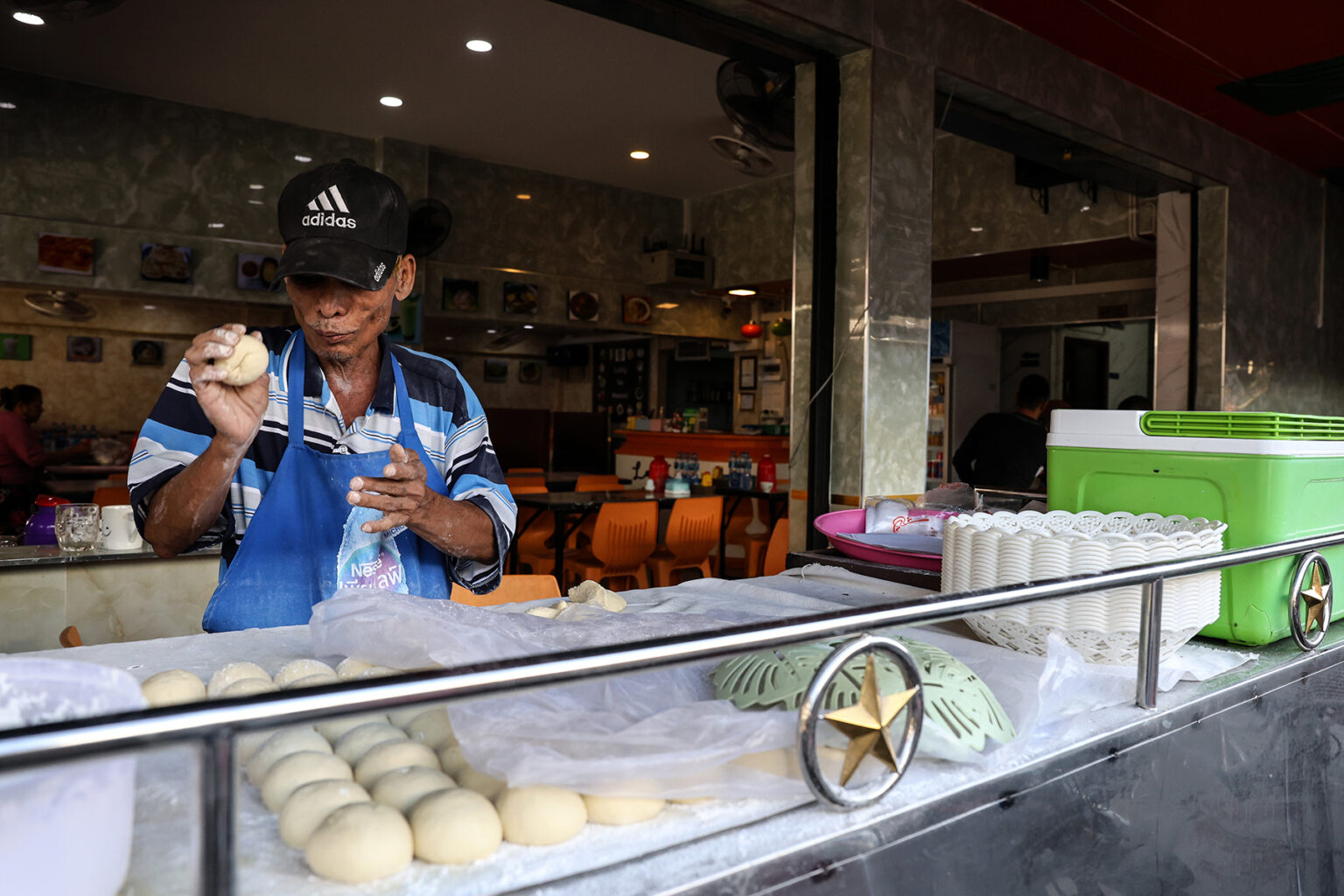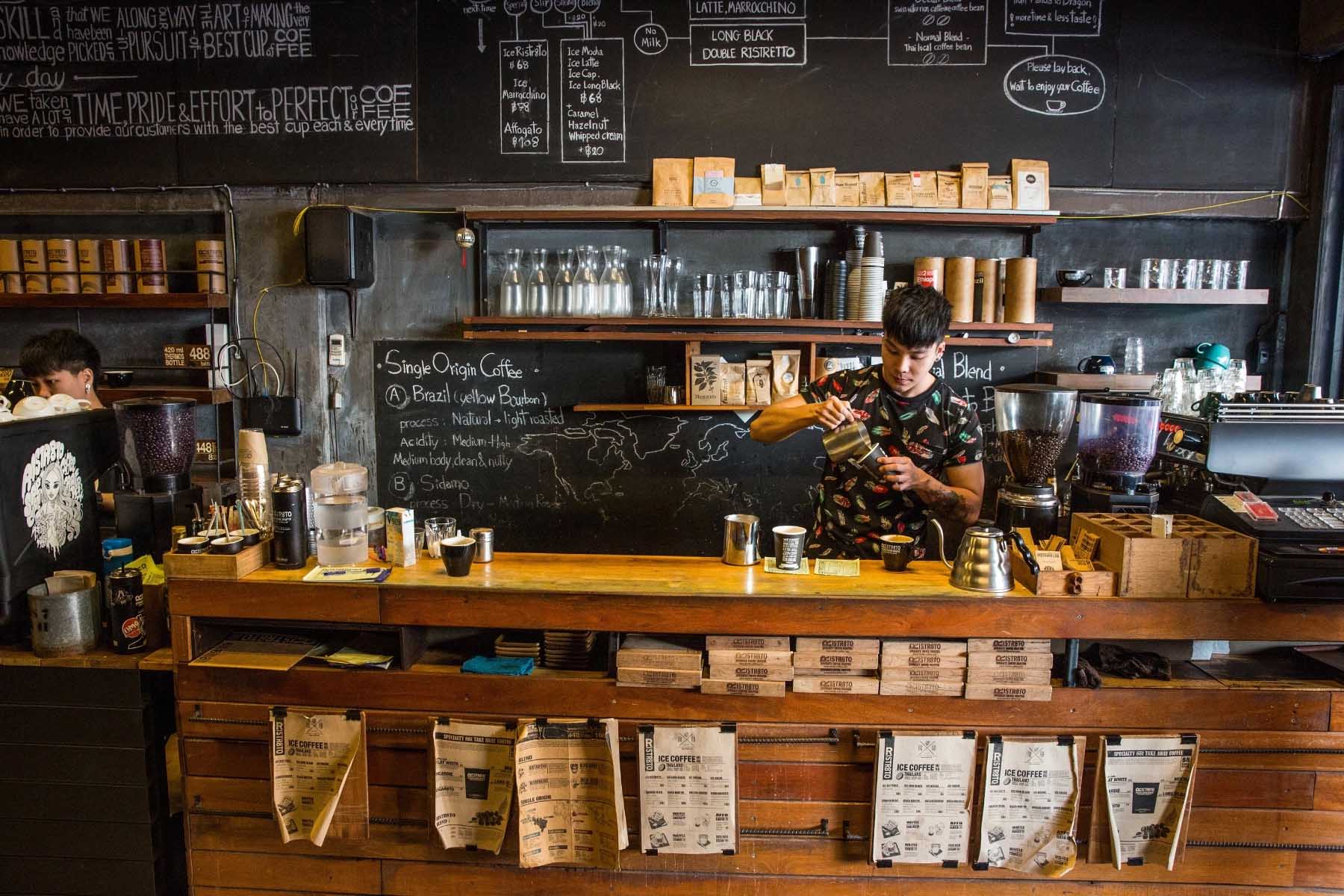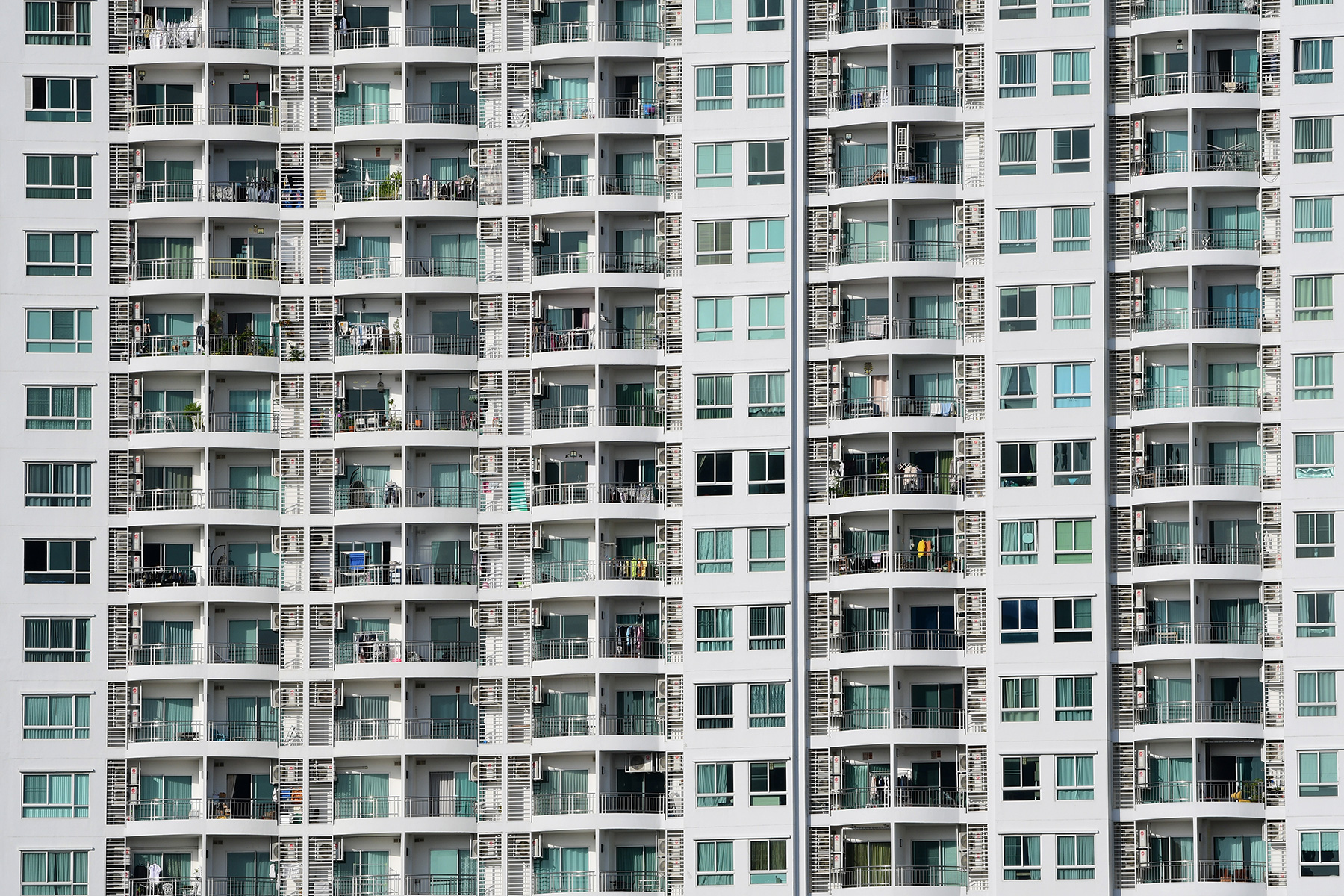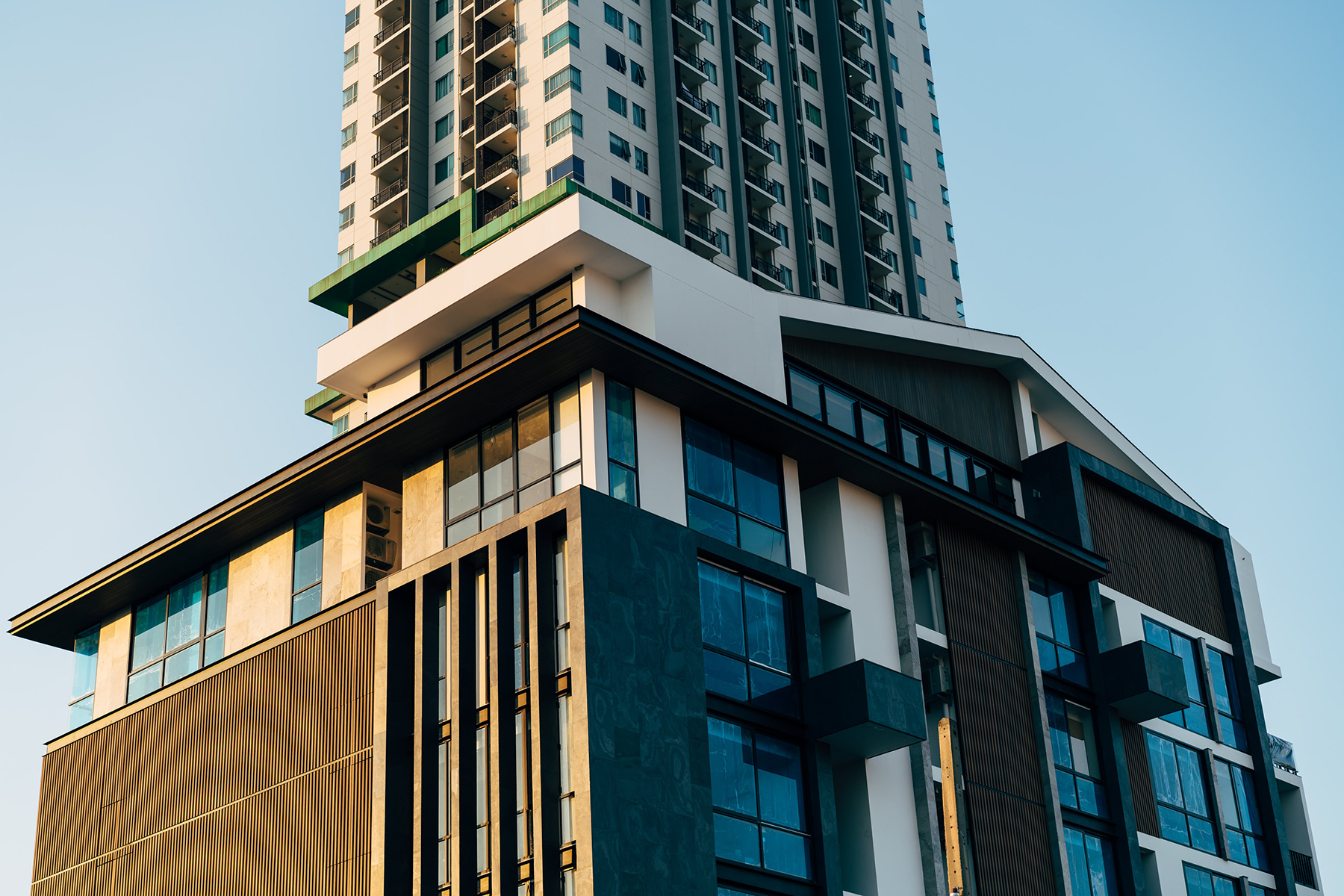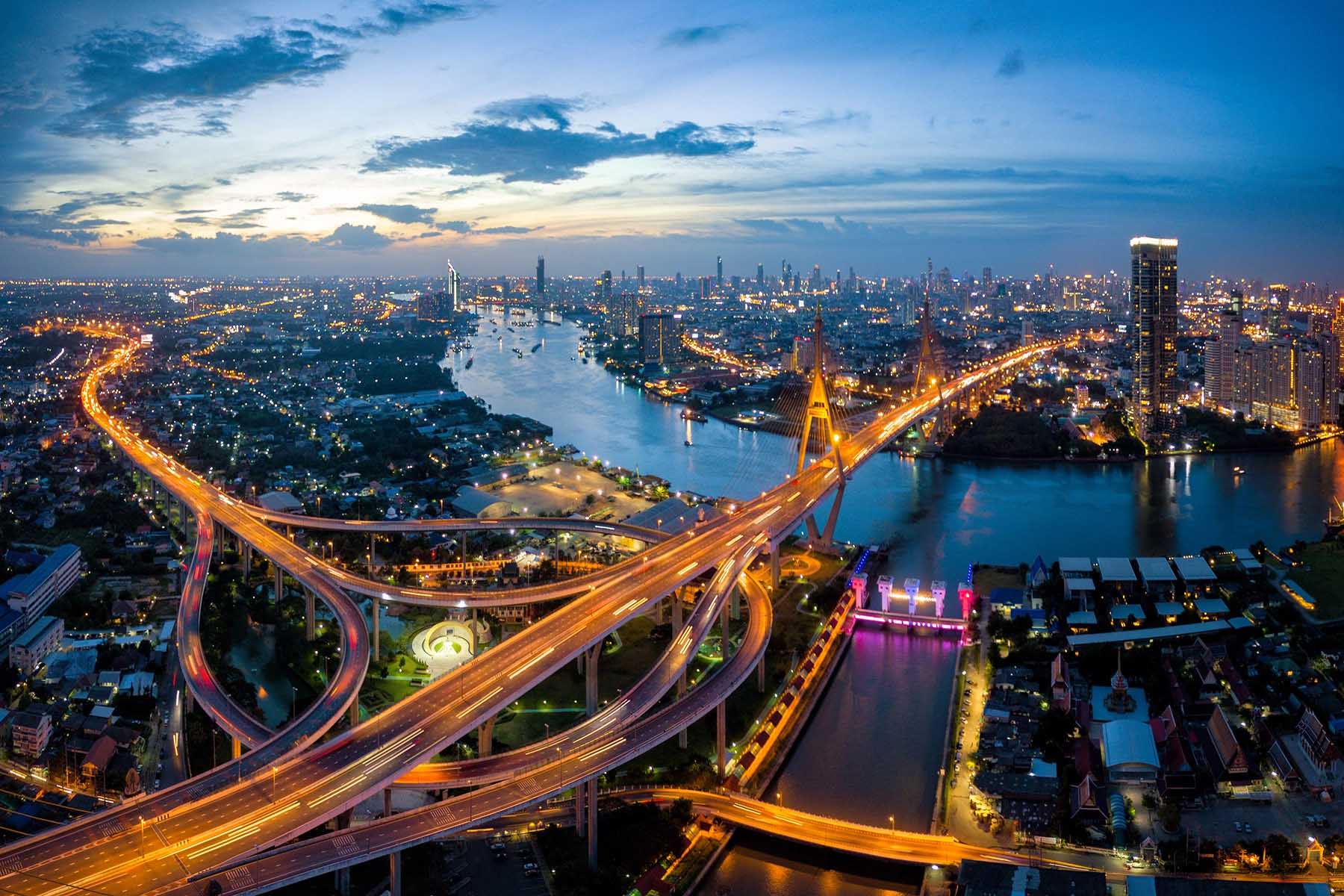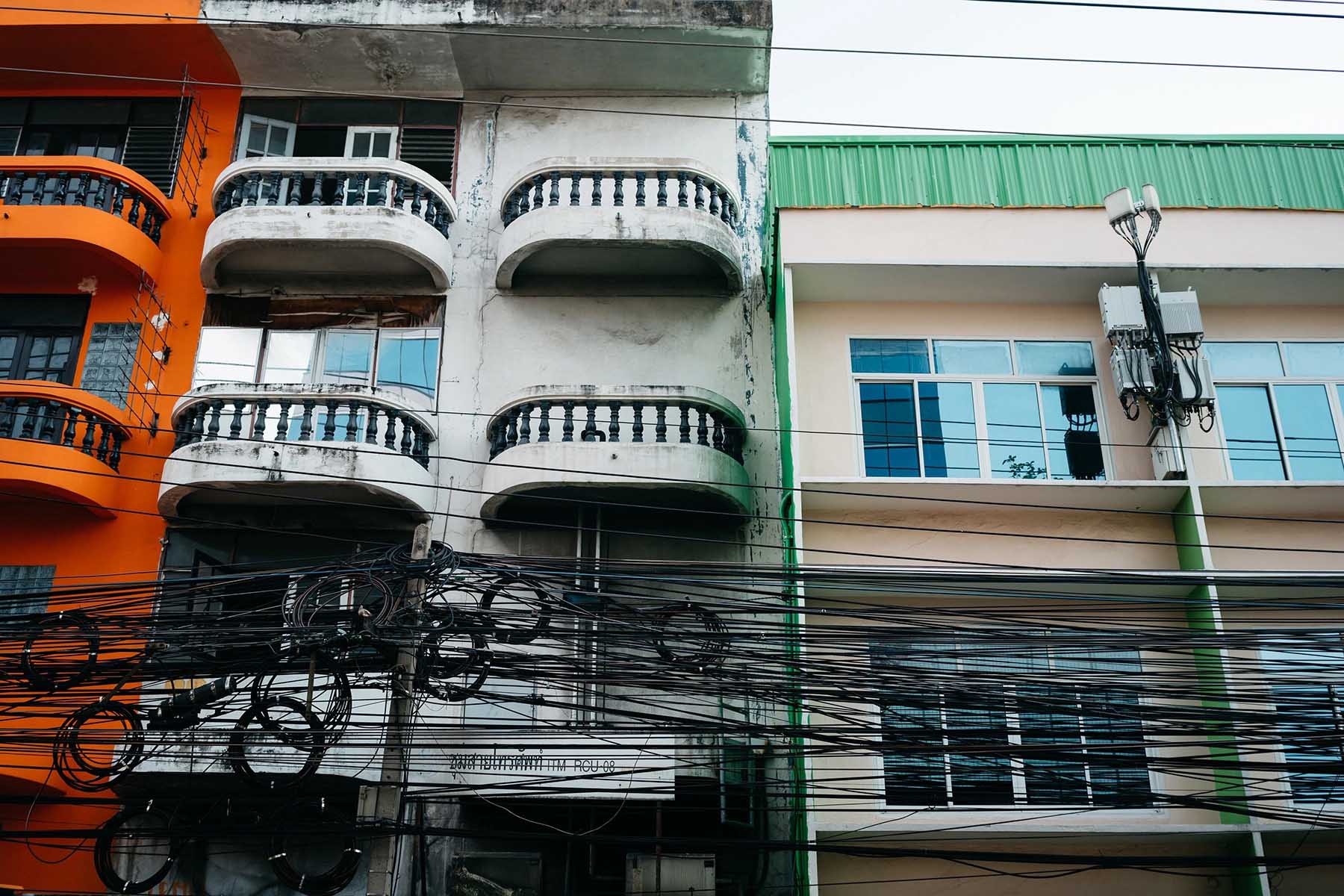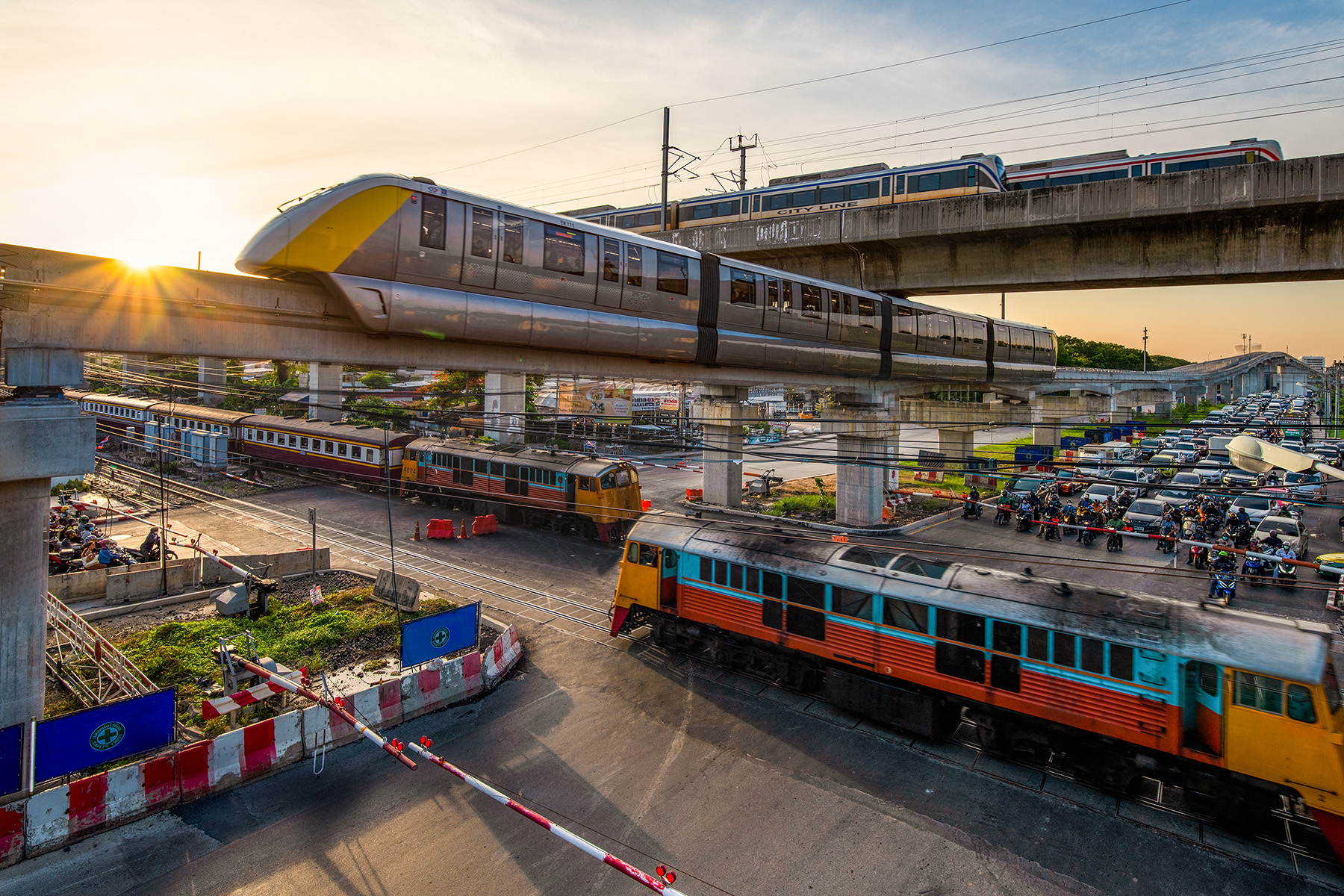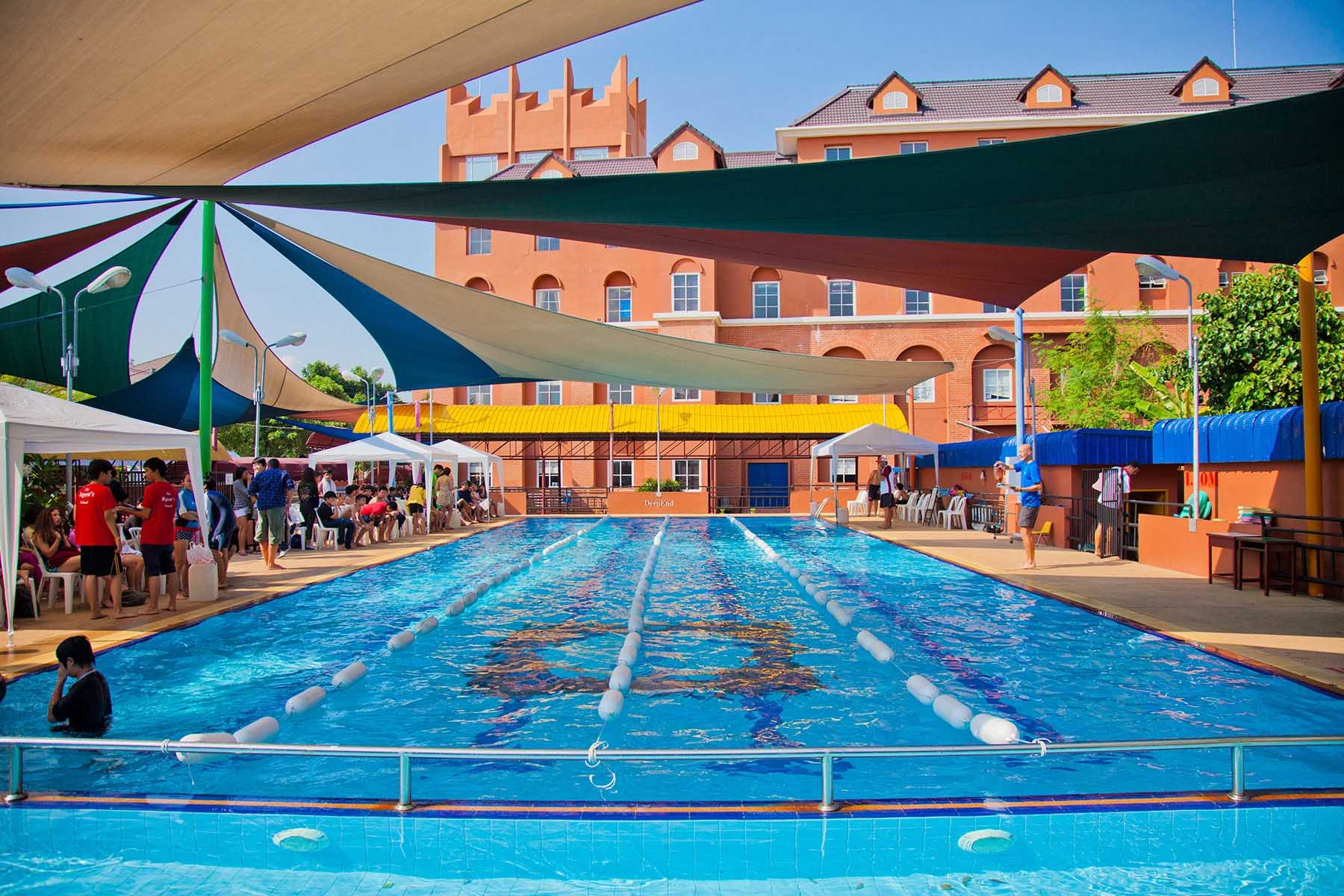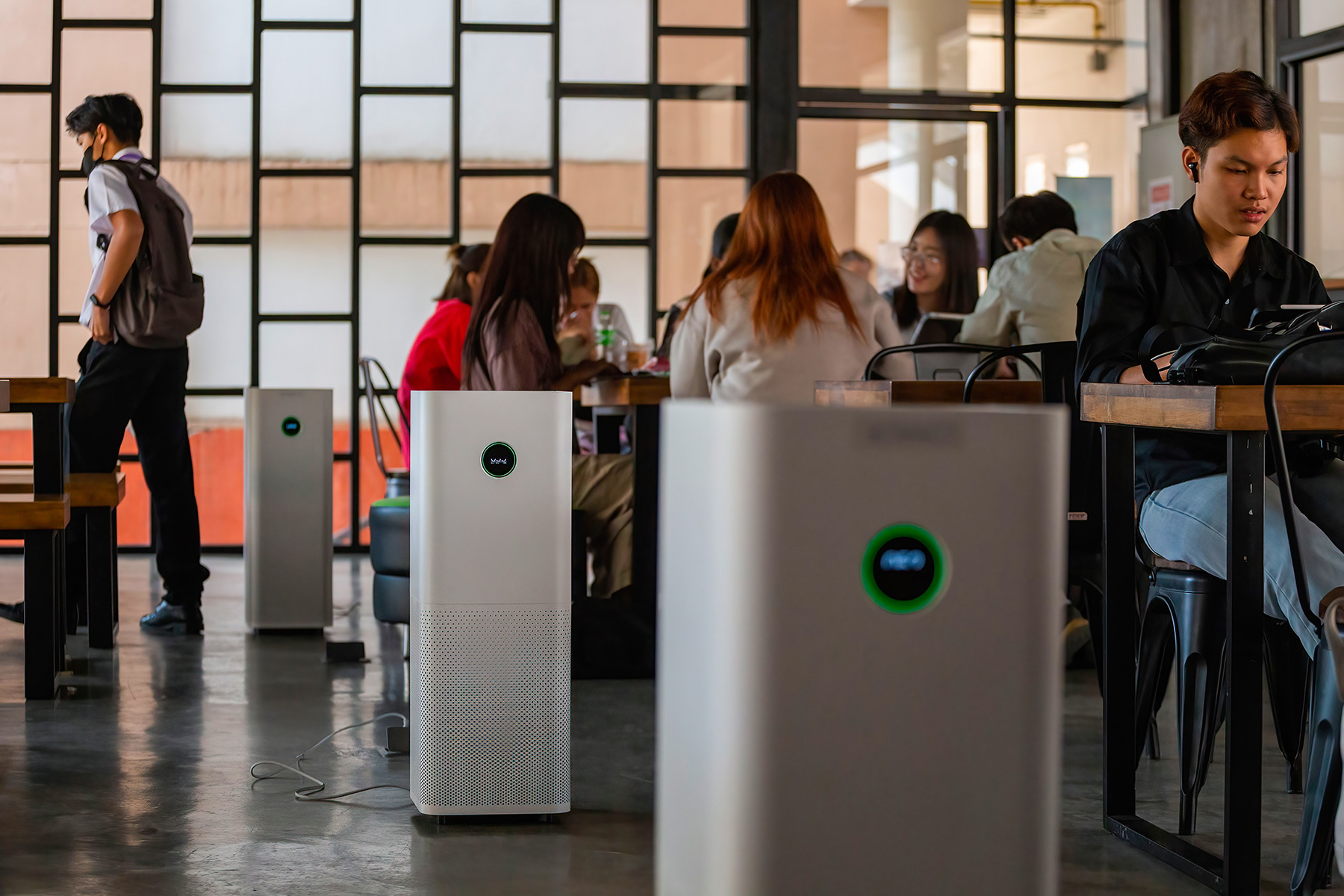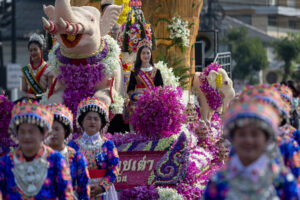Thailand is generally considered more affordable than many Association of Southeast Asian Nations (ASEAN) countries. How cheap the cost of living is, however, depends on your lifestyle and spending habits.
This overview of monthly expenses will give you a clear picture of what (budget) it takes to make Thailand your new home.
Continue reading for the following information:
SafetyWing
Stay protected worldwide with Nomad Insurance Complete from SafetyWing. This medical and travel insurance plan covers check-ups, mental health, maternity care, travel protection, and up to $1.5 million in emergency care in 170+ countries, including your home country. Sign up today and save 10% when you choose annual payment.
Is Thailand’s economy good?
Thailand has a fast-growing, mixed economy dominated by manufacturing (24.3% of the GDP in 2024), wholesale and retail trade (16%), and public administration services (15.1%). While small, the agricultural sector remains vital, with an 8.7% share of the GDP.
Of course, despite overall economic growth, the economic situation varies a lot depending on where you are:
- Bangkok and nearby areas – this high-productivity area is the country’s economic engine, with lots of jobs in finance, tourism, and retail.
- Eastern Economic Corridor (EEC) – this area is focused on industries and new technologies, bringing in major investments from other countries.
- Northern and Northeastern regions – while home to nearly half of Thailand’s population, these farming areas contribute around 15% to the national GDP. They tend to have slower growth and more poverty compared to the big cities.
These differences show the gap and economic inequalities between urban development and rural life in Thailand.

Inflation and disposable income in Thailand
Thailand didn’t escape the high inflation rates suffered by most countries after the COVID-19 pandemic. But after the steep 6.1% in 2022, Thailand’s inflation slowed down to 1.2% in 2023 and 0.4% in 2024. This figure is below the ASEAN average of 3% (2024). As of December 2025, the inflation rate is slightly negative at -0.28%.
The country’s GDP works out to US$7,980 per capita (or ฿251,500 in October 2025). However, the Thai disposable income is a little lower. According to the Thai Statistical Yearbook (2024), net disposable income per capita was ฿137,000 (about $4,344) in 2023. This is less than half of the Asia-Pacific average of US$8,927 per person (2025).
According to Thailand’s 2025 Household Survey (PDF in Thai), the average monthly household income is ฿28,151 (around $850). Around 4.9% of the population lives in poverty, according to a 2024 government report. People living in rural areas face a significantly higher risk of poverty than those living in inner city areas. The region with the highest ratio of poor people is the South, especially in the three provinces of Yala, Pattani, and Narathiwat.
Learn more about average salaries and income by reading our article on minimum wage in Thailand.
The cost of living in Thailand in 2026
According to official government data (in Thai), households spent an average of ฿22,282 per month in 2024.

Keep reading for an overview of the cost of living expenses you might come across in your daily life.
The price of groceries in Thailand in 2026
Beer, wine, and liquor
Thai people aren’t big drinkers (compared to Europeans, anyway), consuming roughly 6.8 liters of pure alcohol per year. Thai households spent ฿216 per month on alcohol and tobacco products in 2025.
Like many consumable products, alcohol is generally relatively cheap in Thailand. This is especially true for local beers and spirits – imported alcohol will always cost more. For example, a bottle of domestic beer like Singha might cost ฿45 to ฿80, while an imported beer might be around ฿60 to ฿180.
As most wines are imported, these items are more expensive, ranging from ฿350 to ฿800 a bottle.
Food and drink
Although groceries are generally quite affordable in Thailand, households spend more on groceries than everything else. According to the Thai Statistical Yearbook (2024), average household spending on food and groceries in 2023 was around ฿8,000 per month. This works out at around 36% of total household expenditure.
The average price ranges* of basic supermarket items include:
| Product | Price range | Product | Price range |
| Apples (1 kilo) | ฿39–170 | Ginger (1 kilo) | ฿40–60 |
| Bread (1 loaf) | ฿30–100 | Orange juice (1 liter) | ฿31–77 |
| Cheese (1 kilo) | ฿300–1,200 | Regular milk (1 liter) | ฿44–99 |
| Coffee (100 gram) | ฿77–3,400 | Rice (1 kilo) | ฿27–97 |
| Eggs (12) | ฿44–96 | Tomatoes (1 kilo) | ฿30–100 |
| Garlic (1 kilo) | ฿70–100 | Water (1.5 liter) | ฿10–30 |

Hygiene and household products
Hygienic and household products are essential for a healthy, comfortable lifestyle. These include everything from toothpaste and shampoo to dish soap (or washing-up liquid) and toilet bleach. The average price ranges* of these necessities include:
| Product | Price range | Product | Price range |
| All-purpose cleaner (1 liter) | ฿29–124 | Shampoo (140 ml) | ฿39–114 |
| Deodorant (250 ml) | ฿178–269 | Soap (1 bar) | ฿11–215 |
| Dish soap (1 liter) | ฿9–62 | Tampons (per piece) | ฿9–12 |
| Garbage bags (per bag) | ฿3–50 | Toilet paper (per roll) | ฿4–17 |
| Laundry detergent (1 liter) | ฿100–329 | Toothpaste (100 ml) | ฿27–195 |
2026 housing costs in Thailand
Housing costs are the second-largest expense after groceries. In 2025, the estimated housing costs in Thailand are roughly ฿5,183 per month. This includes rent, mortgage payments, and utilities.
It’s important to realise, however, that this number is based on the national average and will differ greatly on your location.
Rent and property prices in Thailand
As in other countries, property prices in Thailand can differ significantly between cities and regions and by type and size of the home. For example, inner-city apartments in Bangkok are more expensive than homes in rural areas and smaller (less popular) cities.
In 2026, the average rent is ฿8,000–26,000 per for a city studio and ฿18,000–88,400 for a three-bedroom apartment. Potential homeowners pay an average of ฿70,000–241,000 per square meter for city homes and ฿45,000–120,000 per square meter for a place in the suburbs.

Depending on the location, you’ll pay the following average housing prices (as of February):
| City | Average monthly rent (1-bed apartment city center) | Average monthly rent (1-bed apartment suburbs) | Average property price per square meter (city center) | Average property price per square meter (suburbs) |
| Bangkok | ฿21,634 | ฿10,852 | ฿202,737 | ฿101,250 |
| Chiang Mai | ฿15,269 | ฿8,712 | ฿65,120 | ฿48,620 |
| Chiang Rai | ฿7,750 | ฿8,375 | ฿64,583 | ฿32,292 |
| Koh Samui | ฿25,671 | ฿13,625 | ฿65,000 | ฿45,000 |
| Pattaya | ฿18,687 | ฿11,978 | ฿95,833 | ฿53,993 |
| Phuket | ฿20,850 | ฿15,400 | ฿134,000 | ฿95,000 |
Learn more about the real estate market and property prices by visiting our articles on buying a home and renting in Thailand. Our country article on where to live highlights popular residential areas for expats.
Utility bills: water, gas, and electricity
Thailand falls in the middle when it comes to utility costs among the ASEAN countries (2024). The average utility cost ranges between ฿1,600–4,750 per month, depending on your location, use, and property size.
All Thai utilities are managed and distributed by state-owned suppliers, with separate regulators for Bangkok and the rest of the country. The country has no mains gas supply, so you will have to buy cooking gas in canisters.

In 2026, you can expect to pay ฿4.26/KhW for electricity and ฿10.20–21.00 per unit for water. LPG cooking gas costs are currently frozen at ฿423 for a 15kg canister.
Discover more about connecting your water, gas, and electricity, as well as green energy alternatives, by reading our article on utilities in Thailand.
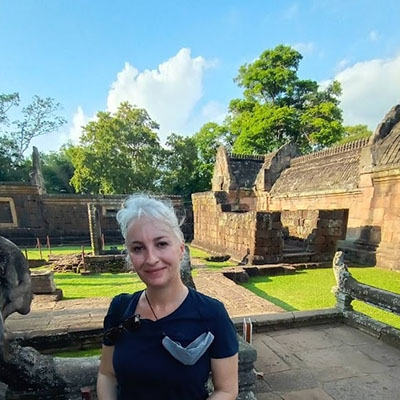
Local expert
Jane Evans
Insider tip
Apartment building owners usually charge more per unit electricity and water, which can make a big difference in monthly costs, especially when you have your air-conditioning running.
The cost of Thai healthcare
All citizens can access free or subsidized public healthcare in Thailand. The system, funded in part by taxation, also covers expat residents who pay social security (SSO) contributions. If the SSO covers you, your health insurance payments may also cover dependent family members; check with your employer to see whether this applies.
Allianz Care
Allianz Care is a world-leader in providing international health insurance. Their various premiums provide professionally designed solutions for a variety of expat lifestyles. So, wherever your life takes you, make sure you have the right health protection for you and your family with Allianz Care.
Foreign nationals who aren’t eligible for public healthcare will need a private health insurance policy to cover their medical needs. You can choose either a government-registered Thai insurer (covering Thailand only) or an international health insurance provider (covering healthcare globally), such as:
While public health insurance contributes to around 5% of your salary, private insurance premiums are much higher. Of course, it all depends on your provider and coverage plan, but comprehensive plans (that include maternity care, inpatient and outpatient treatment, and dentistry) cost anything from ฿2,000 to ฿5,000 per month.
Households spent an average of ฿1,335 per month on medical and personal care in 2025.
Internet and telecom prices in Thailand
The cost of internet and other telecommunication services in Thailand varies greatly, depending on the provider and the type of connection or service. For example, you can expect to pay ฿200–700 for a monthly phone plan with airtime and data. The cost for a home internet connection ranges from ฿400 to ฿850 per month, whereas fiber internet can set you back ฿1,200–2,000 per month.

Local expert
Jane Evans
Insider tip
Your building or location may restrict your options for internet providers. For example, TOT has excellent fiber optic internet packages and IPTV with English language options but the service is usually not available in older residences or suburbs.
The cost of clothing and footwear
Off-brand clothing and footwear are very cheap in Thailand, especially at places like the Chatuchak Weekend Market or MBK Center (both in Bangkok). Common global brands are slightly more expensive than elsewhere due to import taxes. Of course, luxury designer clothing and accessories have luxury premium prices.
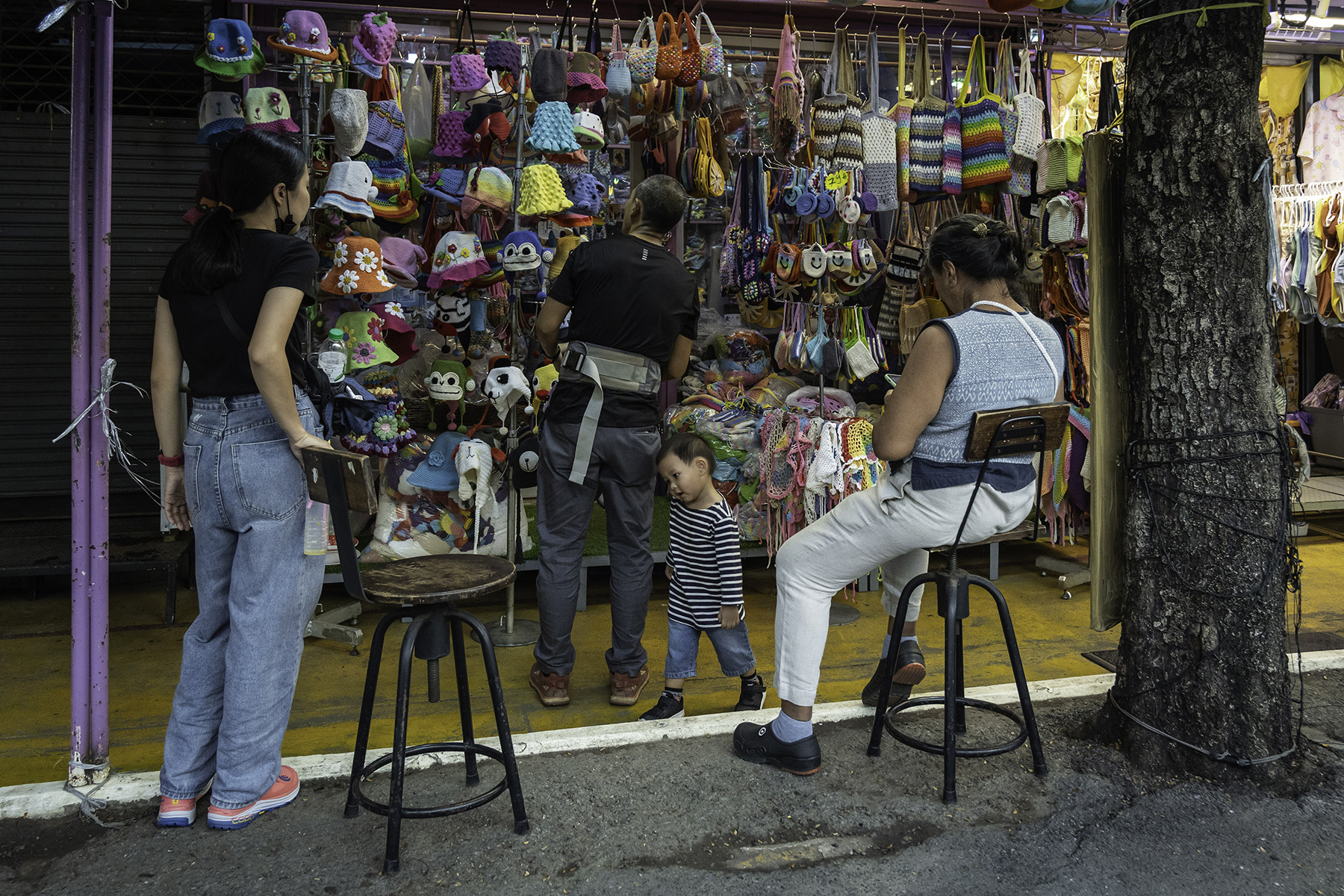
The cost of clothing and footwear varies greatly, for example:
- Underwear costs between ฿200–420
- Dresses or jeans range from ฿500 to ฿3,000
- Branded shoes will set you back about ฿1,500–4,500
In 2025, households spent around ฿442 per month on clothing and footwear.
The cost of transportation in Thailand
Travel and vehicle costs are Thailand’s third-largest expenses each month. In 2024, Thai households spent an average of ฿3,713 per month for transportation.
Public transport
Thailand’s public transport network is fast, robust, and generally affordable. Depending on your location, you travel easily and with varying comfort levels using the bus, metro, songthaew, train, or tuk-tuk.
Fares vary by mode of transport. For example, one-way trips by bus or train cost ฿10–50, while fixed routes by songtaews cost ฿10–30. If you are planning to commute to work, it’s recommended you get a monthly pass to travel at a discounted cost. These cost between between ฿600 and ฿1,800, depending on the type.
Driving and vehicle costs
While it is easy to get around on public transport, many people in Thailand choose to get around by car or motorcycle. Although driving (or being driven) presents a lot more freedom, it’s also generally more expensive than public transportation. Vehicle owners pay an average of ฿4,000–7,000 per month for fuel, insurance, and maintenance.

Beyond the initial costs of lessons, a driving license, and the actual purchase of the vehicle, you’ll need to budget for:
- Annual car tax – typically between ฿800 and ฿10,000 a year
- Motor insurance – mandatory motor insurance starts from as little as ฿581 a year
- Fuel costs – as of February 2026, gasoline costs ฿41.37 per liter, and diesel costs ฿30.14 per liter
- Maintenance – routine maintenance sets you back between ฿10,000–20,000 a year
Our articles on getting a driving license and buying a car in Thailand cover more on driving costs, mandatory insurance, and exchanging your foreign driver’s permit.
How much does leisure and entertainment cost?
In 2023, the average household spent an estimated ฿242 per month on entertainment.
Movie theaters and cinemas
The average movie ticket in Thailand costs around ฿150–300, depending on the location, the day, and the seats you choose. Some cinemas also offer theater passes that allow you to watch unlimited movies for an x amount per month. Others have discounted days and tickets, offering a screening for as low as ฿80–250.
Restaurants
One of the best parts of living in Thailand is the cost of dining out. The country has an incredible food culture, from humble streetside stalls to international fine-dining restaurants. Street food is extremely affordable, and even the fanciest fine-dining restaurants in Bangkok are cheaper than similar places in Europe or Northern America.

In Thailand, a meal at a casual diner or streetside eatery averages around ฿50–220 per person. Two people can expect to pay between ฿500 and ฿2,000 for dinner at a mid-range restaurant. The most expensive places – such as the Michelin-starred Le Du – expect you to fork out a minimum of ฿3,900–4,500 per person.
As with everything else in the country, you will find the most expensive restaurants in Bangkok and places that are popular with tourists. In other parts of Thailand, dining out is generally more low-key, with reasonably priced meals.

Local expert
Jane Evans
Insider tip
Seafood in restaurants are often be priced per kilogram (kg). You can ask about the price before ordering so you don’t get a shock when it’s time to pay.
Sports
If you are planning to join a gym in Thailand, you can expect to pay about ฿800-3,200 a month, depending on your location and membership. For an 18-hole round of golf, you pay around ฿1,000–6,000. Renting a tennis court costs ฿250–700/hour.
The cost of Thai education and childcare
Households will paid around ฿307 per month for education in Thailand (2023). If you’re a parent budgeting for childcare (not included in the estimate), keep in mind that private options, like professional child-minders, are more expensive than other alternatives.

Childcare
Working parents with (young) children may need to arrange for childcare from time to time. In Thailand, options include nurseries, daycare centers, preschools or kindergartens, and professional childminders.
It is common for parents and other relatives to take care of children aged 0–2. Those who can afford it may also send their child to a nursery, or hire a nanny or au pair.
In Thailand, nurseries cost between ฿100,000 and ฿600,000 a year. Meanwhile, full-time nannies make an average of ฿283,450 per year, depending on their experience, qualifications, workload, and location. Au pairs, on the other hand, earn between ฿8,000 and ฿15,000 a month, plus accommodation and meals.
Children aged 3–5 will typically go to a preschool. Thailand has a wide range of public and private kindergartens available, though international preschools are often located in cities with significant expat populations (e.g., Bangkok or Chiang Mai). Kindergarten tuition fees vary between ฿200,000 and ฿600,000 a year.
Children’s education
Thailand’s public schools are funded by the government and offer free education from ages 3 to 18. Understandably, lessons are in Thai.
If this is not your primary language, you may prefer to send your children to a private or international school. These come with varying school fees depending on the school’s location, curriculum, and grade. For example, for 2025/26, the International School of Bangkok charges ฿640,000 per year for pre-kindergarten students. High school students, on the other hand, pay up to ฿1,162,000 per year.
You can read more about school curriculums and fees in our article on international schools in Thailand.
University tuition fees
Studying in Thailand is quite affordable compared to some other countries in Asia and Northern America.
The cost of a bachelor’s degree varies greatly per university and study program. International students can pay anywhere between ฿33,000–375,000 per year. Master students can pay over ฿525,000 per year.
Find out more about degree programs and costs by reading our article on studying in Thailand.
How does Thailand compare to the rest of the world?
Although it’s not the cleanest place to live (air pollution-wise), Thailand’s affordable living costs come with relatively high standards of living. For example, the country ranks 76th in the world on the 2025 Human Development Index. Similarly, Bangkok and Chiang Mai rank 116th and 130th respectively on the 2025 Global Liveability Index.
The highest – and only – Thai city on the 2024 Mercer’s Quality of Living Index is Bangkok (124th). The capital is set below other major cities like New York (45th), Rome (59th), Cape Town (105th), Brasilia (117th), and Bejing (123rd). However, it beats out places like Ankara (138th), Jakarta (148th), and New Delhi (173rd).

The cost of living in Bangkok
As its capital and economic center, Bangkok is Thailand’s most expensive city to live in. Yet, it is still more affordable than many other metropolises worldwide. As of February 2026, Bangkok’s cost of living is:
- 68% cheaper than New York (the US)
- 62% cheaper than London (the UK)
- 56% cheaper than Amsterdam (the Netherlands)
- 22% more expensive than Yangon (Myanmar)
- 24% more expensive than Vientiane (Laos)
- 17% more expensive than Phnom Penh (Cambodia)
- 95% more expensive than Delhi (India)
The cost of living in Nonthaburi
Nonthaburi is Thailand’s second-largest city, with a total population of roughly 270,600 people. The capital city of the province of the same name, it is known for its many temples. Interestingly, the province itself is famous for growing the best durian in the country.
Compared to other cities around the world, the cost of living in Nonthaburi is (as of February 2026):
- 76% cheaper than New York (the US)
- 66.4% cheaper than London (the UK)
- 60.3% cheaper than Amsterdam (the Netherlands)
- 15.4% cheaper than Yangon (Myanmar)
- 12.3% cheaper than Vientiane (Laos)
- 7.5% cheaper than Phnom Penh (Cambodia)
- 54.9% more expensive than Delhi (India)
The cost of living in Nakhon Ratchasima
With just over 174,300 residents, Nakhon Ratchasima (or, more commonly, Korat) is Thailand’s third-largest city. It is seen as the gateway to the Lao-speaking region of the country.

The cost of living in Korat is typically lower than in Bangkok (as of February 2026), as well as:
- 77% cheaper than New York (the US)
- 73% cheaper than London (the UK)
- 69% cheaper than Amsterdam (the Netherlands)
- 13% cheaper than Yangon (Myanmar)
- 13% cheaper than Vientiane (Laos)
- 17% cheaper than Phnom Penh (Cambodia)
- 39% more expensive than Delhi (India)
The cost of living in Chiang Mai
Chiang Mai is Thailand’s fourth-largest city and one that’s popular among expats. The metropolis, nicknamed the Rose of the North, is well-loved for its stunning temples, bustling markets, and incredible food scene.
The cost of living in Chiang Mai is generally lower than in other major Thai cities (as of February 2026), as well as:
- 76% cheaper than New York (the US)
- 71% cheaper than London (the UK)
- 67% cheaper than Amsterdam (the Netherlands)
- 8% cheaper than Yangon (Myanmar)
- 7% cheaper than Vientiane (Laos)
- 12% cheaper than Phnom Penh (Cambodia)
- 47% more expensive than Delhi (India)
The cost of living in Phuket
The tropical, beachside lifestyle of Phuket attracts many tourists and new residents, whether they are Thai or foreign expats.
However, the cost of living on this island is relatively expensive. General living costs are nearly 8% higher than in Bangkok, while rent costs are 17% more expensive and restaurant costs 42% pricier.

Compared to other cities around the world, the cost of living in Phuket is (as of February 2026):
- 66% cheaper than New York (the US)
- 59% cheaper than London (the UK)
- 53% cheaper than Amsterdam (the Netherlands)
- 32% more expensive than Yangon (Myanmar)
- 32% more expensive than Vientiane (Laos)
- 26% more expensive than Phnom Penh (Cambodia)
- 110% more expensive than Delhi (India)
Financial support for the cost of living in Thailand
In certain situations, Thai residents are entitled to financial support and social security benefits. For example, workers without a job can apply for unemployment benefits, which is 30–50% of their previous wage.
Other benefits that can help you with the cost of living in Thailand:
- Sickness benefits – available to workers who are no longer able to work due to an illness or accident
- Disability benefits – to help workers who live with minor or severe disabilities
If you are unable to pay for food and groceries, you can get support from a local food bank. For example, Bangkok Food Bank has 50 centers across the city to help vulnerable households in the area.
Tips on how to save money in Thailand
All affordability is relative to your household income and size. A single bachelor may have more to spend than a family of four.
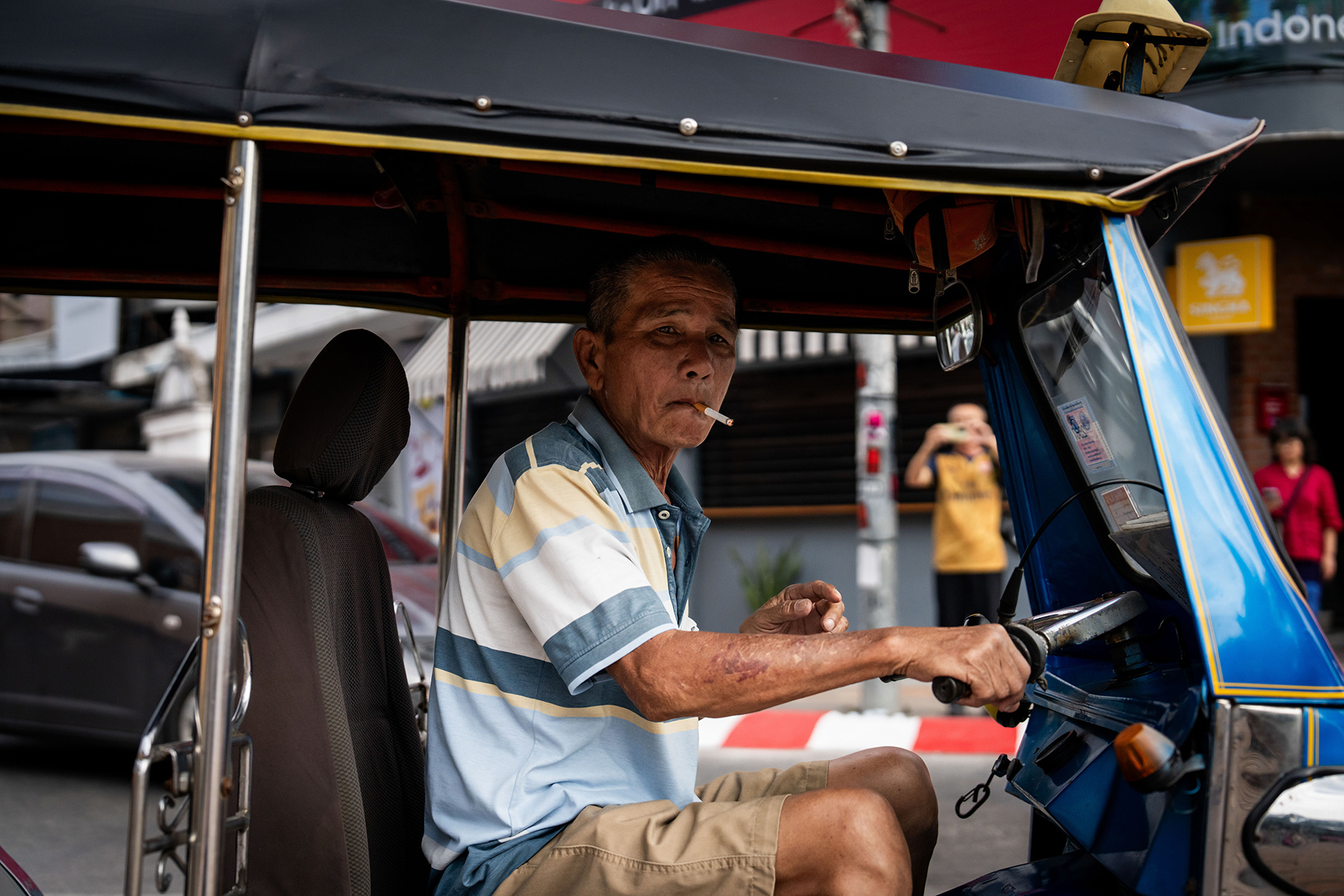
Here are some tips for saving money while living in Thailand:
- Shop smartly at wet markets – wet markets often have fresh produce, meat, and seafood at a lower price than supermarkets. It’s also common to haggle or barter to get a better deal (though, if you do, do so respectfully).
- Dine out strategically – when you are eating out, street food is king. Markets like Chatuchak or local night bazaars offer full meals for a fraction of restaurant prices. If you do want to go to a restaurant, look for local eateries (ร้านอาหารตามสั่ง), where they serve Thai dishes at very reasonable prices.
- Buy clothes and products on sale – Thailand’s malls are tempting, but try to shop at markets or during festival or holiday sales to snag great discounts.
- Choose budget-friendly transportation – while taxis and tuk-tuks are very convenient, it’s cheaper to travel through cities by public transport. For longer commutes, consider taking buses, trains, or ferries instead of domestic flights. You can also rent a moped or motorbike when exploring rural areas.
- Use energy wisely – save on electricity by using fans instead of air conditioning and switching to energy-efficient bulbs and appliances. If possible, rent housing that includes utilities to avoid unpredictable bills.
- Switch to Thai banks and telecom providers – open a Thai bank account to avoid hefty ATM withdrawal fees for foreign cards. When receiving payments from abroad, use a service like Wise for better exchange rates and lower costs. Similarly, shop around for local telecom providers to see which offer affordable SIM and internet packages.
Useful resources
- Thailand Consumers Council (TCC) – official website of Thailand’s consumer watchdog
- BKK Food Bank (in Thai) – website of Bangkok’s food bank
- Household Socio-Economic Survey (in Thai) – latest government data on household spending and cost of living in Thailand
